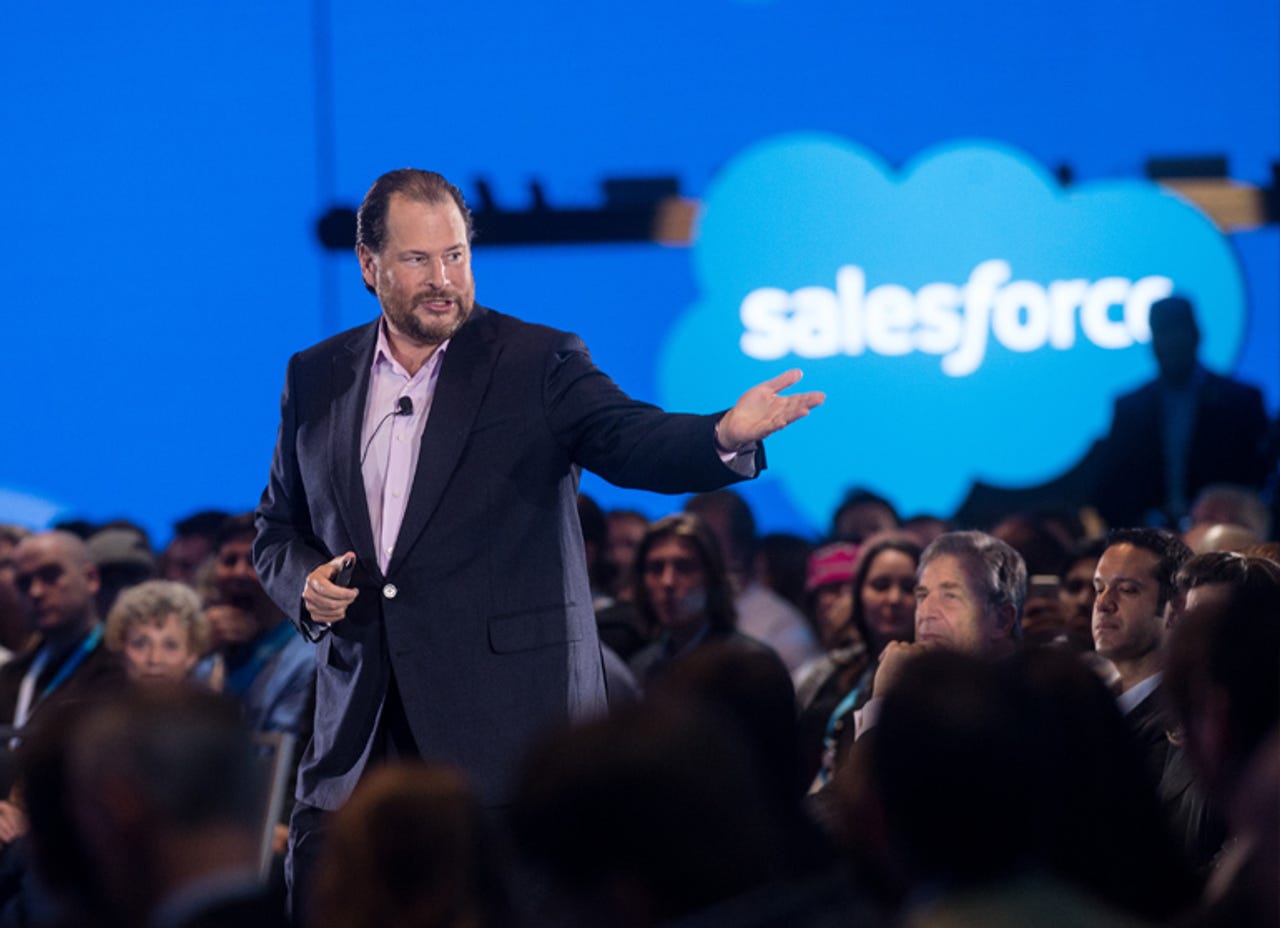Marc Benioff's Dreamforce keynote: 5 takeaways


Salesforce CEO Marc Benioff delivered the Dreamforce keynote on October 5, 2016.
Salesforce CEO Marc Benioff on Wednesday delivered the keynote address at the Dreamforce 2016 conference, which this year drew more than 170,000 to San Francisco.
He stressed his company's philanthropic efforts and its business partnerships, sharing the stage with everyone from artist and philanthropist Will.i.am to Schneider Electric CEO Jean-Pascal Tricoire. While Salesforce's new products were announced ahead of time, here's a look at some of the key takeaways from the keynote:
Activism and philanthropy isn't hurting business
Benioff is known for making philanthropic causes a central part of Salesforce's mission and for taking a stand on social justice issues like gender equality and LGBT rights. For instance, Salesforce was one of several Silicon Valley companies to take a stand against anti-LGBTQ laws, such as North Carolina's controversial House Bill 2.
Salesforce put its philanthropic efforts front and center during the Dreamforce keynote, highlighting its partnership with the (Red) organization to create an "AIDs free generation." Salesforce announced that Bill and Melinda Gates agreed to double-match all the money raised for (Red) during Dreamforce, while the Benioffs have agreed to put in $1 million to match the $1 million they're aiming to raise from attendees.
Early on in his keynote, Benioff appropriately quoted Albert Einstein, who said, "Only a life lived for others is a life worthwhile."
At the same time, he touted Salesforce's continued growth, pointing out the business will bring in more than $8.3 billion in revenue this year. The company is projected to have a $389 billion GDP impact by 2020, with about 2 million jobs created by then.
Consumer tech inspired Salesforce's AI push
Einstein, Salesforce's new artificial intelligence platform, makes Salesforce "the world's smartest CRM," Salesforce co-founder and CTO Parker Harris declared on stage with Benioff. To build the platform, the company looked for inspiration from consumer technology, he said, pointing to Amazon's use of predictive recommendations, Siri's natural language processing and other use cases
"We're going to use AI to... make you smarter, assist your service," Harris said.
There are five ways enterprise software is transforming
Benioff stressed the five concepts driving the evolution of enterprise software: intelligence, speed, productivity, mobility and connectivity.
"It's these five concepts we're trying to build everything around," he said.
These concepts are driving Salesforce's new products and features. For instance, keeping its eye on the importance of mobility, the company is updating the Salesforce1 mobile app to let businesses customize the UX with their own colors and logos. It's also launching LiveMessage, which allows third party messaging apps and social networks to serve as a user interface for Salesforce users.
It's all about the customer
By focusing on those five concepts, Salesforce is attempting to build a suite of tools that gives its customers a 360-degree view of their customers.
"These are opportunities to become closer, more connected to our customer than ever before," Benioff said. "That's the power of our community."
Through intelligence and connectivity, even GM -- with its Salesforce enabled smart dashboards -- is building holistic views of its customers and through that aiming to build lifelong relationships with those customers.
Salesforce's success is built on its partnerships
Salesforce's platforms have enabled a whole slew of businesses to build products and services around its ecosystem, while the company has built up its own capabilities in the past year with several acquisitions.
Meanwhile, the company has collected 750,000 ideas from IdeaExchange, its forum where customers can suggest new product features. With the help of customer input, Salesforce has added more than 500 new features to Salesforce Lightning, the company's design framework, since Dreamforce 2015.
"When we build innovation, we do not build it alone, we build it with our ohana," Harris said, using the Hawaiian word for family. The Salesforce "ohana" was referenced several times throughout the keynote.